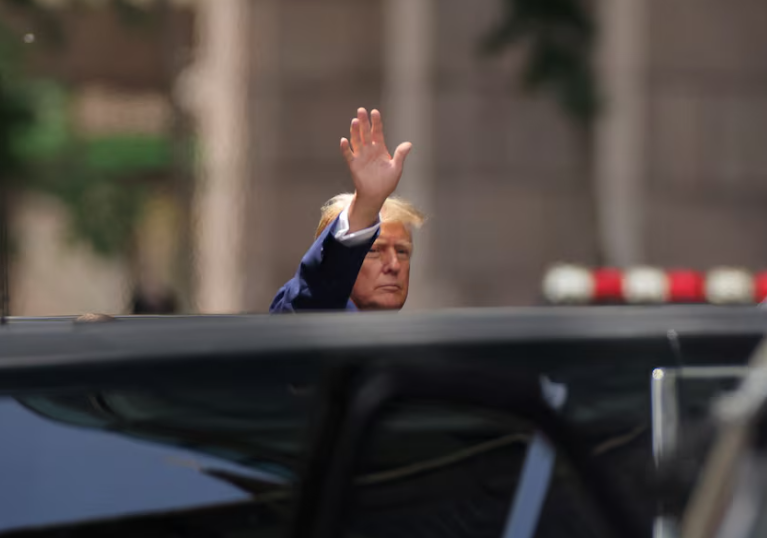Manhattan prosecutors who secured Donald Trump’s historic criminal conviction asserted that the verdict should stand, despite the U.S. Supreme Court’s ruling that presidents cannot face criminal charges over official acts. In a court filing dated July 24 and made public on Thursday, prosecutors urged a judge to reject Trump’s bid to overturn the verdict due to the ruling. They argued that the decision had no relevance to their case, which stemmed from hush money paid to a porn star.
“The charges in this case all involve purely personal conduct, rather than official presidential acts,” wrote prosecutors from Manhattan District Attorney Alvin Bragg’s office.
Trump, the Republican nominee in the upcoming Nov. 5 election, faced conviction on May 30 on 34 felony counts of falsifying business records. This was to cover up his former lawyer Michael Cohen’s $130,000 payment to porn star Stormy Daniels for her silence before the 2016 election about an alleged sexual encounter with Trump. Trump denies any encounter with Daniels and vowed to appeal the guilty verdict. He is the first U.S. president, past or present, to be convicted of a crime.
Legal experts suggest that Justice Juan Merchan is unlikely to grant Trump’s request to toss the verdict, as much of the conduct in question predated Trump’s 2017-2021 presidency and relates to personal matters. However, Merchan delayed Trump’s sentencing from July 11 to Sept. 18, less than two months before the election, to give his lawyers the chance to present their case.
Two weeks ago, Trump’s defense lawyers urged the judge to dismiss the verdict because prosecutors relied on evidence of his official acts during the trial, which they argued was improper in light of the justices’ ruling. The justices’ 6-3 ruling on July 1 stated that evidence of official acts cannot be used in a prosecution on private matters.
Trump’s lawyers criticized the introduction of evidence from Twitter posts Trump made in 2018 about Cohen, which prosecutors said showed Trump knew that his former lawyer had paid off Daniels. Defense lawyers argued that those posts were official communications. In their Thursday filing, prosecutors maintained that Trump made the posts in his “unofficial capacity.”
Trump also objected to the testimony of two White House aides and the prosecutors’ use of a financial disclosure form that referenced Trump’s reimbursement to Cohen. Prosecutors countered that the aides testified about private matters and that the disclosure form dealt with Trump’s private finances. They argued that even if Merchan decides that some of the evidence introduced at trial involved official acts, the verdict should stand because there was plenty of other evidence of Trump’s guilt.
“Harmless error cannot be a basis for setting aside a verdict,” prosecutors wrote.
Merchan stated he will decide on Trump’s arguments by Sept. 6. If the conviction is upheld, the case will proceed to sentencing. Once sentenced, Trump could formally appeal the verdict and the sentencing to a higher-level state court.

